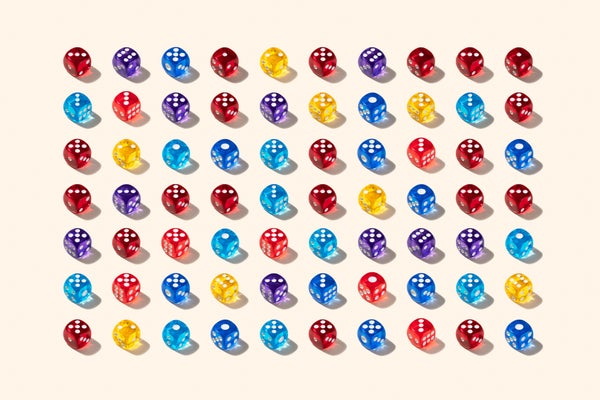COVID-19 packs its punch largely through uncertainty. If the virus were visible to our eyes, we could have avoided it and conducted the rest of our business as usual. It’s not only that we cannot see the virus itself, but that we also don’t see its symptoms in some of the people who might infect us. And so, we take severe precautions, far out of proportion to the specific locations and times where we are significantly exposed. We avoid interactions with uninfected people who pose no risk to us, and we refrain from activities that would have let our economy remain afloat and perhaps even continue to prosper. We stay put when a poisonous insect is nearby, simply because we cannot see it.
In Albert Camus’ book The Plague, a life-threatening disease provides a vivid illustration of our existential reality. We know that we will die one day but cannot prepare for it since we have no way of forecasting when it will happen. Existential uncertainties extend beyond our private lives into the societal arena. The Vietnam War was triggered by ambiguity in the interpretation of the Gulf of Tonkin incident and shaped the life of a generation.
One might naively assume that fundamental uncertainties in our lives merely reflect lack of information; and that by tracing the missing information, we would be able to clear the fog of the unknown. However, quantum mechanics, which lays the foundation for our physical reality, implies that there is a limit to the clarity we can hope to achieve. The Heisenberg uncertainty principle states that the there will always be residual uncertainty for some observables. If we attempt to refine our knowledge of the position of an electron, our measurement process will inflate the uncertainty in its momentum. The product of the uncertainties in position and momentum has a fundamental minimum set by Planck’s constant.
On supporting science journalism
If you're enjoying this article, consider supporting our award-winning journalism by subscribing. By purchasing a subscription you are helping to ensure the future of impactful stories about the discoveries and ideas shaping our world today.
This implies that even if we retrieve all available information through a perfect experiment, we would still be unable to forecast the future of the electron deterministically. Traditionally, our life was shaped by massive objects, such as the car we drive in, for which Heisenberg’s uncertainty is entirely negligible. But with the advent of information technology, artificial intelligence and quantum computing, the quantum world may end up shaping medical decisions in life and death situations. The bedrock of reality is probabilistic. We can only assign likelihoods to different outcomes.
Contrary to Albert Einstein’s letter to Max Born in 1926, we now know that nature does plays dice. There is always some probability that we might die after being infected by COVID-19. Those attending pool parties without social distancing play Russian roulette. Most of them will survive, but some will die.
Of course, medical preconditions could strongly affect rare outcomes like death from COVID-19. Events in real life often stem from a confluence of many causes, making them difficult to decipher. Only under special circumstances is it possible to identify unambiguously the main cause of a phenomenon. This is the reason behind controlled scientific experiments, which offer the opportunity to isolate one influence at a time in the quest for better understanding.
When data are scarce, the perception of the scientific community can change considerably. Recent RNA sequencing of virus mutations revealed that the path of COVID-19 infections throughout the United States was very different than previously thought.
But even when a lot of data are collected, our ability to comprehend its true meaning limits the reliability of our forecast. The Mayan culture assembled a vast amount of astronomical data over many centuries and correlated their sky images with human history for the political benefit of forecasting the outcome of wars. We now know that the uncertainties implicit in human actions, as in the Vietnam War, cannot be cleared by monitoring the sky positions of the moon, Mercury, Venus, Mars, Jupiter or Saturn. Instead, the current purpose of science is to relate causes to effects in a reproducible fashion without wishful thinking or prejudice. Astronomy educates us that the motions of planets and stars have nothing to do with human actions, and genetics enlightens us that human abilities have nothing to do with skin color.
Still, there are vast gaps in our scientific understanding. As a result, many people rely on wishful thinking when confronting uncertainties for some of the most consequential decisions in their life, including whether or not to join a pool party during the COVID-19 pandemic. This would have seemed natural if it were based on past experience, but the young partygoers were not around when a similar pandemic raged in 1918.
Is there a better way? How should we cope with the fundamental uncertainties that thread our life? The responsible advice is simple: we should consider all the scientific evidence and adopt a measured risk on the unknowns. We do such a calculation every time we cross the street. Only a fool would never cross the street because of the risk involved. Rewards are often conditioned on risks. You must jump into the water if you wish to learn how to swim; but in the process of doing so, you risk drowning. For now, you'd better avoid any public pool until scientists create a reliable vaccine for COVID-19.
